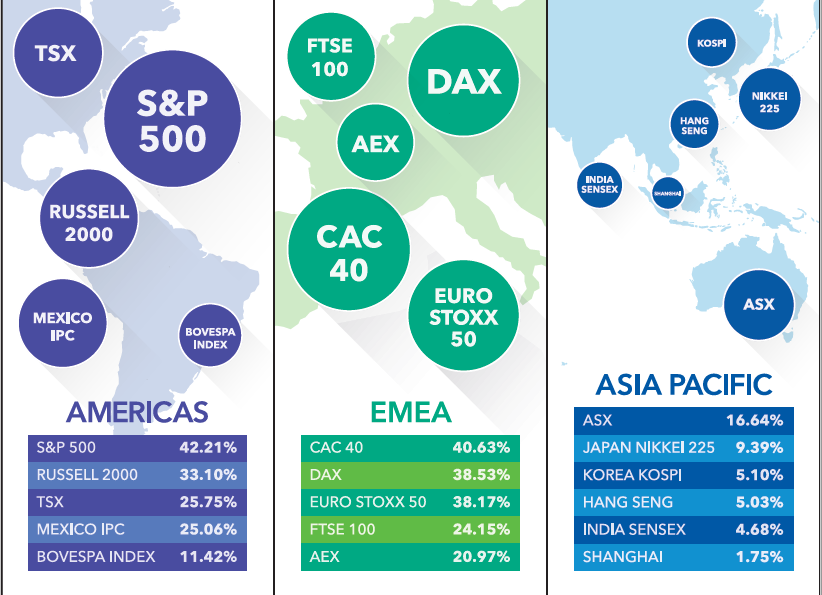FASB and IASB, two global financial reporting standards setters, are diverging on rules about accounting for goodwill on the balance sheet which could have a profound effect on company valuation. Investors clearly favor impairment over amortization.
Goodwill balances in the United States and globally are much larger than many realize.
As the Financial Accounting Standards Board (FASB) and the International Accounting Standards Board (IASB) discuss a change in goodwill accounting (i.e., a move away from impairment only to amortization), we believe it is essential for standard setters to contextualize the size of any change, and when making a decision, to consider not only the technical accounting merits, but also the impact of any change on the financial statements of corporations in the United States and globally, as well as the implication of the IASB and FASB reaching different conclusions on the comparability of companies globally. Standard setters must perform an appropriate cost-benefit analysis and ensure that any change will meet the criteria (i.e., enhancing the decision-usefulness of financial statements) before making a financial reporting change. Currently, the FASB is trending toward a move to amortization with a 10-year default amortization period, and the IASB is moving toward retaining impairment with an improvement in disclosures. To ensure that a change will meet the criteria of improving financial reporting, CFA Institute undertook a member survey of portfolio managers and analysts to collect their views on the nature of goodwill at its initial recognition and to identify whether they view impairment or amortization as more decision-useful to investment decision making. We also asked respondents their views on the usefulness of existing disclosures and necessary improvements. We asked their preference for the best way forward for policymakers, their desire for a converged solution, and several cost-benefit questions.
Methodology
Key Findings
Make sure the path forward is globally consistent:
- Investors wish to see a unified approach for goodwill from policymakers, with 94 percent believing the IASB and FASB should follow the same approach in the subsequent measurement of goodwill.
Improve disclosures, rather than revert to amortization:
- Most investors (58 percent), believe impairment testing should be retained – rather than reverting to amortization – but seek better disclosures that facilitate the assessment of post-acquisition deal performance;o Investors report that current goodwill and impairment disclosures are not useful (70 percent), they want improvement in disclosures before any changes in impairment accounting (66 percent), and they want improvement in such disclosures irrespective of any change in accounting (88 percent);
- Investors believe goodwill is an asset (75 percent), that it can have wasting and non-wasting elements (77 percent), and that it doesn’t necessarily decrease in value over time (53 percent). Amortization presumes goodwill is a fully wasting asset, whereas impairment allows for wasting and non-wasting elements over time;
- Investors recognize timeliness of goodwill impairments could be improved (72 percent), but believe impairment still provides decision-useful information, confirms underperformance (73 percent), holds management accountable (80 percent) and that eliminating impairment would result in loss of information to investors (77 percent).
- 3Investors believe disclosures will facilitate greater transparency and improve timeliness of impairment testing by allowing investors to understand acquisition performance and hold management accountable;
- Most investors, 73 percent, are willing to bear the cost of impairment testing. While understanding amortization would come with impairment testing, investors also recognize amortization would mute impairment testing, leaving it a costly compliance exercise.
- While amortization may be administratively convenient for preparers, it does not allow for discernment of good vs. bad managers (61 percent), distorts financial metrics (63 percent), and does not provide decision-useful information for investment analysis.
- Amortization increases costs but provides no benefit or improvement in financial reporting for investors.
In order of priority, investors want to see improved impairment disclosures concerning:
- Valuation models and related estimates and assumptions;
- Valuation models and related estimates and assumptions;
- Key common performance metrics used by management to monitor the acquisition;
- Key common performance metrics used by management to monitor the acquisition;
- More information on how the board assessed the acquisition’s performance over time;
Taken together, investors support the IASB approach:
- Focusing on enhancing disclosures is more consistent with investor perspectives.

About the Author(s)
Sandy Peters, CPA, CFA
Sandy Peters, CFA, is senior head of financial reporting policy and serves as spokesperson for CFA Institute to key financial reporting standard setters including the IASB, FASB, and the US Securities and Exchange Commission. She holds the Certified Public Accountant (CPA) designation.
